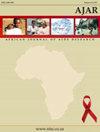Giving condoms to school children: educators’ views on making condoms available in South African schools
IF 1.1
4区 医学
Q4 PUBLIC, ENVIRONMENTAL & OCCUPATIONAL HEALTH
引用次数: 0
Abstract
One of the policy goals of the South African Department of Basic Education’s National Policy on HIV, STIs and TB of 2017 is to reduce the incidence of HIV and pregnancy among learners. This is expected to be achieved by improving access to prevention services, including the provision of condoms in schools. This study uses street- level bureaucracy theory to explain how educators can play a more productive role in ensuring that policy goals are achieved. Educators provide their views on their role as condom promotion agents, their perception of demand and utilisation among learners, as well as their insights on suitable distribution mechanisms in the school setting. Trepidation exists among educators about their roles in the promotion and education of condoms. Educator statements suggest that they see the value in their policy-ascribed role to deliver sexual health messages and are also open to performing a role in the distribution of condoms at schools. However, our findings reveal that their role as policy communicators or “street-level bureaucrats” is complicated by inadequate policy guidance. We therefore conclude that to achieve optimal outcomes in terms of safer sexual practices among learners, condom messaging and distribution mechanisms in school settings require evidence-informed implementation strategies.向学生发放避孕套:教育工作者对在南非学校发放避孕套的看法
南非基础教育部2017年关于艾滋病毒、性传播感染和结核病的国家政策的政策目标之一是减少学习者中艾滋病毒和怀孕的发生率。这一目标预计将通过改善获得预防服务的机会,包括在学校提供避孕套来实现。本研究使用基层官僚理论来解释教育工作者如何在确保政策目标的实现中发挥更有效的作用。教育工作者就他们作为避孕套推广代理人的角色、他们对学习者的需求和使用情况的看法,以及他们对学校环境中合适的分发机制的见解,提供了他们的观点。教育工作者对他们在推广和教育避孕套方面的作用感到不安。教育工作者的声明表明,他们看到了政策赋予他们传递性健康信息的角色的价值,也愿意在学校分发避孕套方面发挥作用。然而,我们的研究结果表明,由于政策指导不足,他们作为政策传播者或“街头官僚”的角色变得复杂。因此,我们得出结论,为了在学习者中实现安全性行为方面的最佳结果,学校设置中的安全套信息传递和分发机制需要循证实施策略。
本文章由计算机程序翻译,如有差异,请以英文原文为准。
求助全文
约1分钟内获得全文
求助全文
来源期刊

Ajar-African Journal of Aids Research
医学-公共卫生、环境卫生与职业卫生
CiteScore
1.80
自引率
8.30%
发文量
38
审稿时长
>12 weeks
期刊介绍:
African Journal of AIDS Research (AJAR) is a peer-reviewed research journal publishing papers that make an original contribution to the understanding of social dimensions of HIV/AIDS in African contexts. AJAR includes articles from, amongst others, the disciplines of sociology, demography, epidemiology, social geography, economics, psychology, anthropology, philosophy, health communication, media, cultural studies, public health, education, nursing science and social work. Papers relating to impact, care, prevention and social planning, as well as articles covering social theory and the history and politics of HIV/AIDS, will be considered for publication.
 求助内容:
求助内容: 应助结果提醒方式:
应助结果提醒方式:


